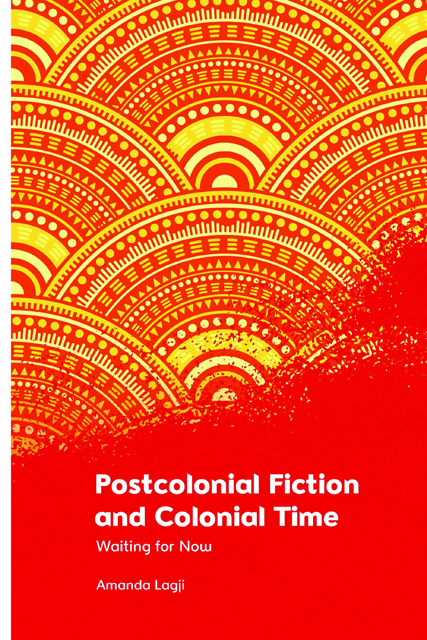Book contents
- Frontmatter
- Contents
- Acknowledgements
- Introduction
- 1 Waiting at the Heart of Colonial Time Regimes
- 2 Projects and Promissory Notes: The Waiting Rooms of V. S. Naipaul and Nadine Gordimer
- 3 Marooned Time: Disruptive Waiting and Idleness
- 4 Gendered Timescapes of Waiting: Patience and Urgency in Novels of Disillusionment
- 5 ‘Strategic Waiting’ and Reconciliation in the Aftermath of Conflict
- Conclusion
- Bibliography
- Index
3 - Marooned Time: Disruptive Waiting and Idleness
Published online by Cambridge University Press: 25 April 2023
- Frontmatter
- Contents
- Acknowledgements
- Introduction
- 1 Waiting at the Heart of Colonial Time Regimes
- 2 Projects and Promissory Notes: The Waiting Rooms of V. S. Naipaul and Nadine Gordimer
- 3 Marooned Time: Disruptive Waiting and Idleness
- 4 Gendered Timescapes of Waiting: Patience and Urgency in Novels of Disillusionment
- 5 ‘Strategic Waiting’ and Reconciliation in the Aftermath of Conflict
- Conclusion
- Bibliography
- Index
Summary
Specifically I want to notice how the idea of alternative or subaltern modernities operates by constructing a normative expectation of resistance or overcoming. Notably it does this, at least in part, by imagining the conditions of the modern as a largely passive or negative environment merely waiting to be surmounted or mastered or translated or displaced by preconstituted subjects: modern transformations occur, and subalterns respond in more or less creative ways.
David Scott, Conscripts of Modernity (2004)Toussaint L’Ouverture, famed leader of the slave rebellion that would become the Haitian Revolution, is a towering figure in the historical chronicles of the Haitian struggle for independence. C. L. R. James’s 1938 The Black Jacobins portrays L’Ouverture not only as a central figure in the slave revolt’s success, but also as the embodiment of it. In the preface to the first edition of his classic historical account, James proclaims that ‘the individual leadership responsible’ for the Haitian Revolution ‘was almost entirely the work of a single man –Toussaint L’Ouverture’. This close focus on L’Ouverture threatens to minimise the efforts of other well-known figures in the decades that comprised the rebellion, as well as those whose names and individual participation remain unrecorded for posterity. Another effect of this version of history, David Scott argues in Conscripts of Modernity, is that it posits an anticolonial ‘narrative mode of Romance’ that plots a relationship between the past and future as ‘a narrative of revolutionary overcoming’. According to Scott, anticolonial resistance is problematically constructed in The Black Jacobins in two ways; the conditions of modernity are ‘merely waiting’ for the revolutionary subject to overcome them, rather than dynamically negotiated, and second, the implicit teleology of overcoming determines in advance what ought to be recognised as acts of resistance. This accounts, in Scott’s view, not only for James’s fixation on L’Ouverture as a ‘romantic’ hero of the Revolution, but also for the limited set of questions posed to the ‘problem-space’ of the revolutionary moment. Instead, Scott calls for analyses ‘more attuned to the productive ways in which power has shaped the conditions of possible action, [and] more specifically, shaped the cognitive and institutional conditions in which the New World slave acted’.
- Type
- Chapter
- Information
- Postcolonial Fiction and Colonial TimeWaiting for Now, pp. 91 - 120Publisher: Edinburgh University PressPrint publication year: 2022



